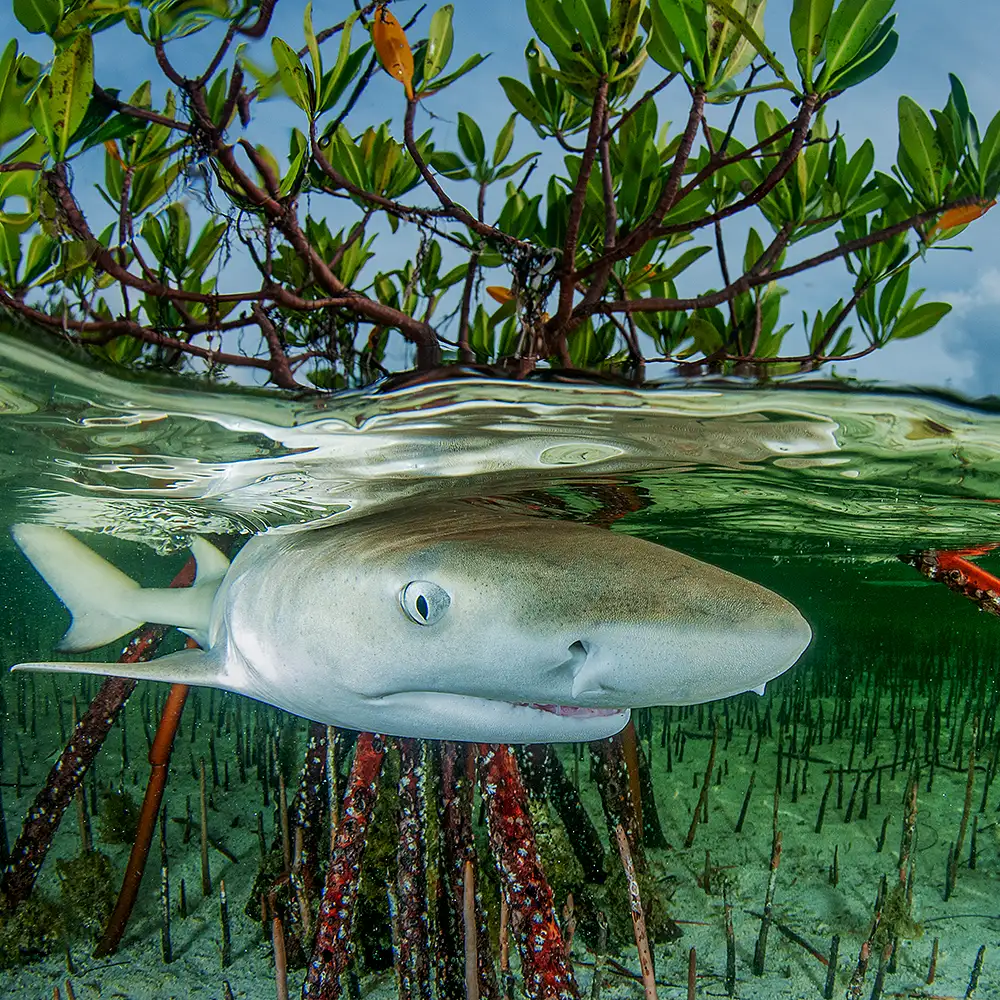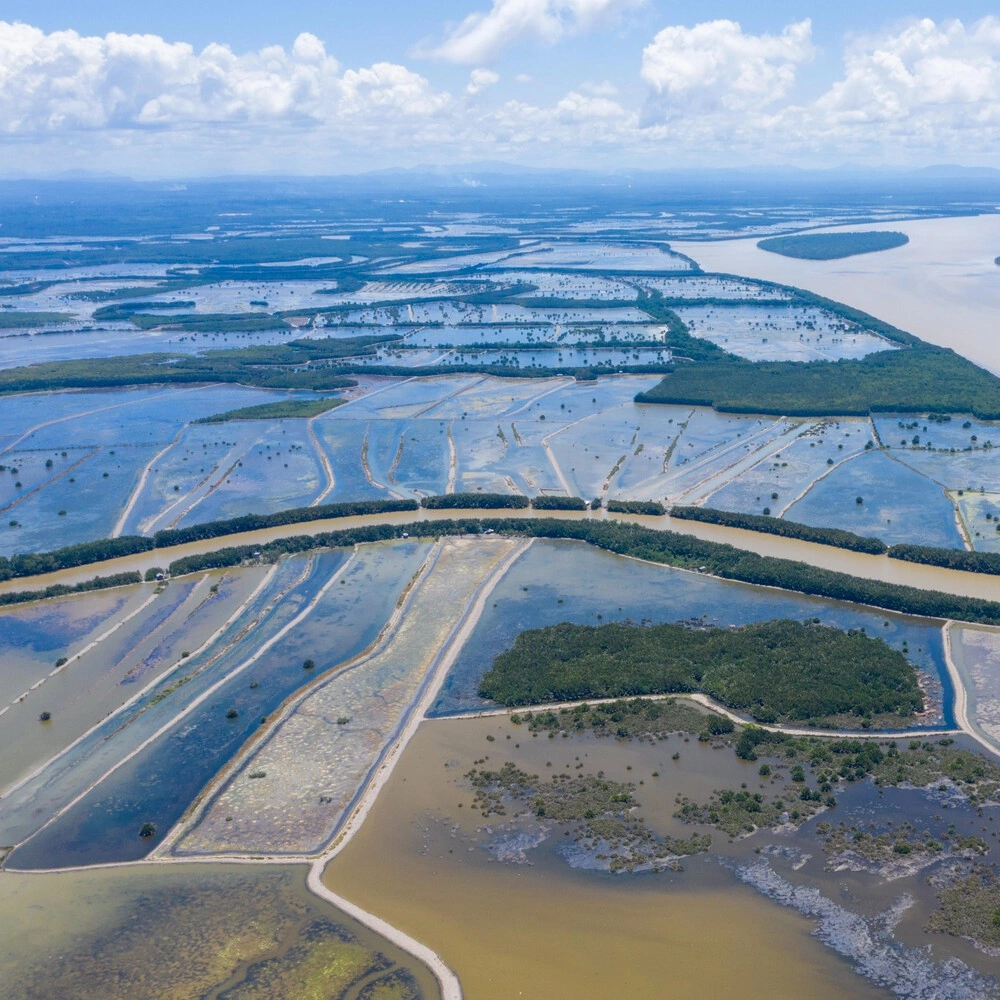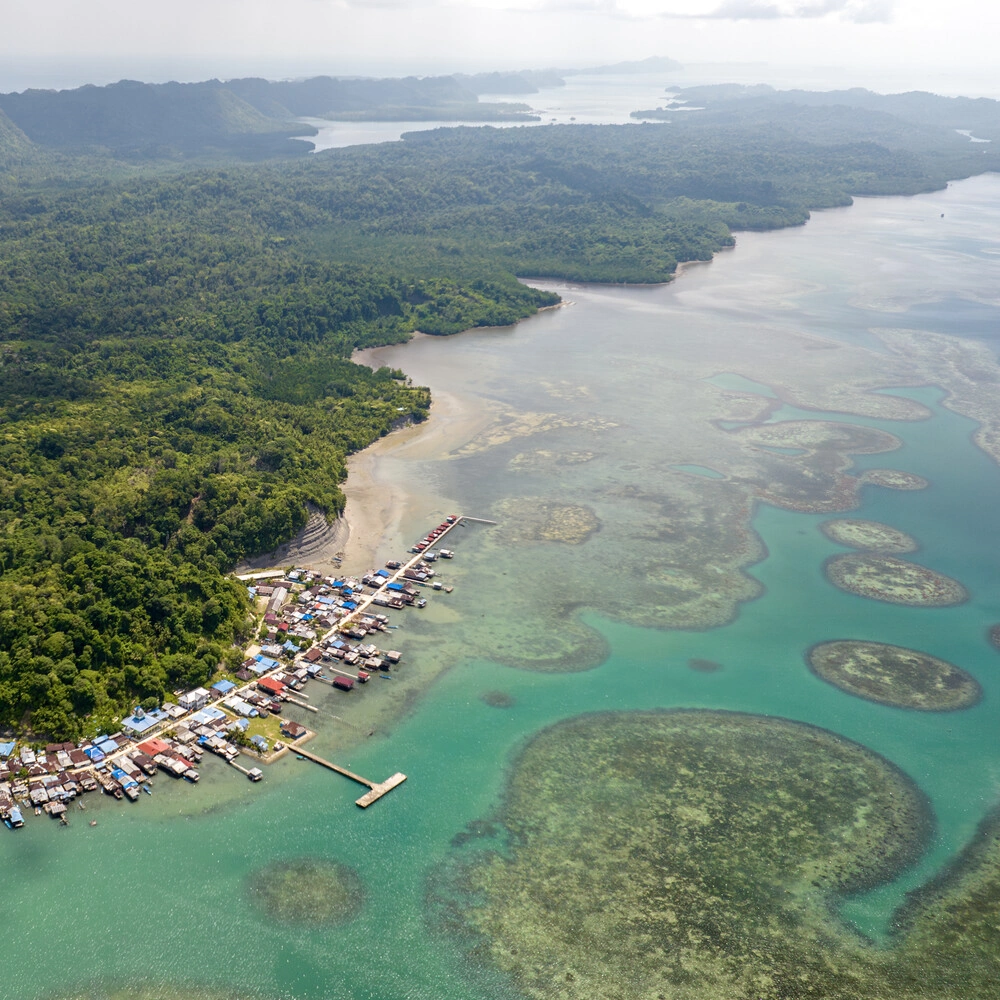The Palk Bay Dugong Conservation Reserve (DCR) in India, located in the shallow coastal waters of southeast India, spans 448 square kilometers between Tamil Nadu and Sri Lanka. Known for its extensive seagrass meadows covering 82% of its area, the reserve supports 40% of India’s dugong population along with endangered whale sharks, dolphins, and vulnerable porpoises. Despite its ecological importance, the reserve faces challenges in sustainable management, primarily due to pressures from local fisheries and limited community involvement. This project focuses on building sustainable financing solutions and enhancing community participation to create lasting conservation impacts in Palk Bay, preserving its unique marine biodiversity for future generations.
Empowering conservation through sustainable financing in India’s Palk Bay Dugong Reserve
Strengthening Conservation Efforts in Palk Bay Dugong Reserve, India
The Palk Bay Dugong Conservation Reserve, nestled between Tamil Nadu, India, and Sri Lanka, is home to rich marine biodiversity, including endangered dugongs and other rare species. This project aims to support sustainable conservation by engaging local communities and establishing innovative financing for long-term protection.
Project Info
More information
Podcast
Collaborative conservation: A nature-based solution for Palk Bay’s people and biodiversity
The Palk Bay Dugong Conservation Reserve is at the heart of a collaborative conservation effort led by the Zoological Society of London, the Wildlife Institute of India, local communities, and the Tamil Nadu Forest Department. Together, they are developing a comprehensive management plan to restore seagrass habitats, increase dugong populations, and reduce threats from fishing net entanglement and illegal activities, such as dugong and sea cucumber harvesting.
This plan emphasizes sustainable fishing practices, more vigorous law enforcement, and diversified income sources for local households to create a balanced approach to conservation. A key project component is a sustainable financing mechanism that includes seagrass blue carbon credits, biodiversity credits, and nature-positive enterprise investments. This innovative strategy not only improves economic sustainability and ensures fair benefit distribution but also enhances climate resilience for the region, reducing dugong mortality rates and protecting vital seagrass ecosystems for future generations.
How BNCFF supports the Palk Bay Dugong Conservation Project
The Blue Natural Capital Financing Facility (BNCFF) supports the Palk Bay Dugong Conservation Reserve by providing essential funding and expertise. This backing is crucial for developing sustainable financing solutions like seagrass blue carbon and biodiversity credits, securing long-term funding for conservation. BNCFF also enhances community engagement, empowering local stakeholders to adopt sustainable fishing practices and diversify income sources. Through this targeted support, BNCFF helps protect Palk Bay’s unique marine biodiversity and fosters a sustainable future for the ecosystem and local communities.
Impacts created
Nature
People
Business
Calls for Proposals
There are no open calls for proposals. Sign up for email alerts to be notified of the next call and receive updates on BNCFF and BCAF projects, lessons learned, and more, or email us at bluenaturalcapital@iucn.org.



























